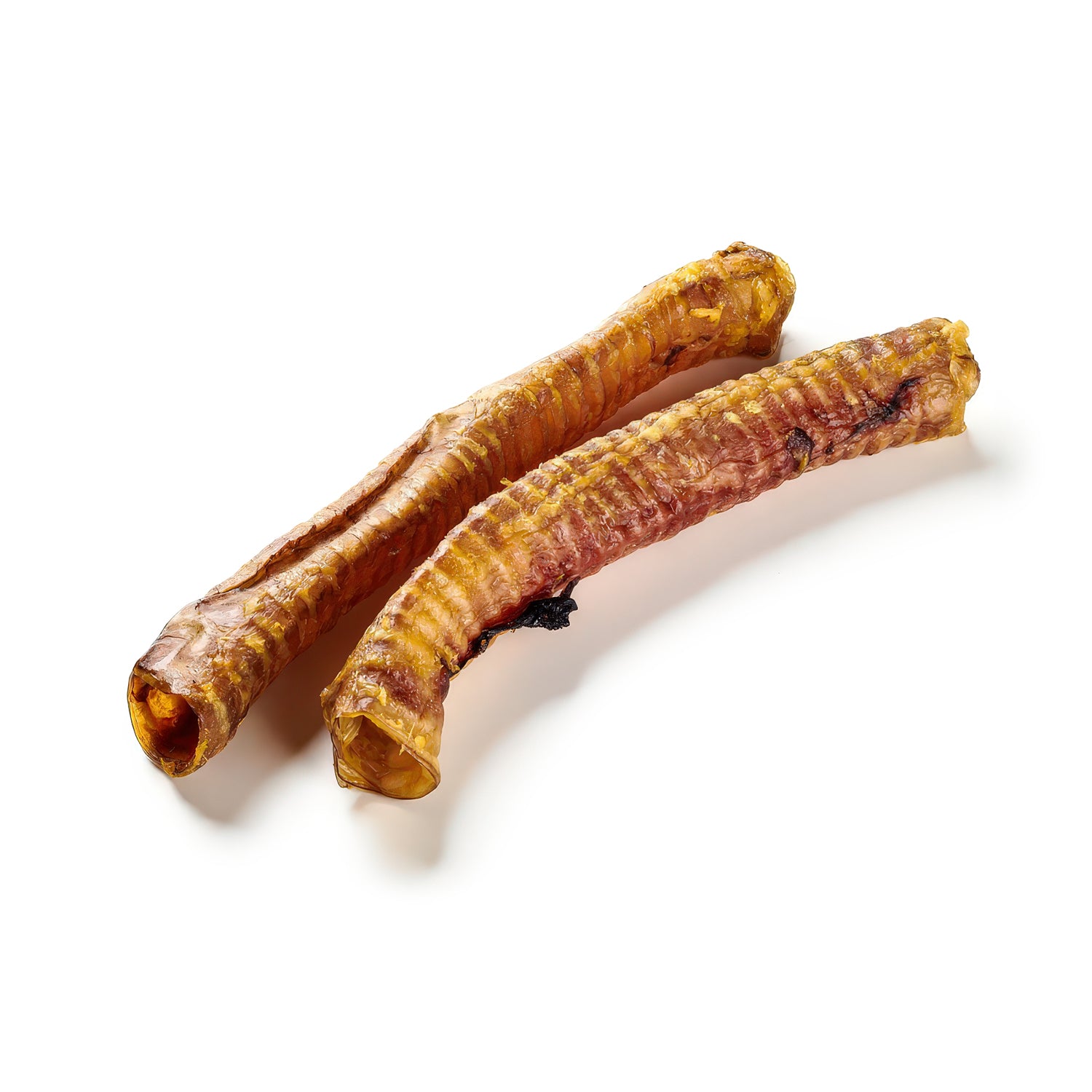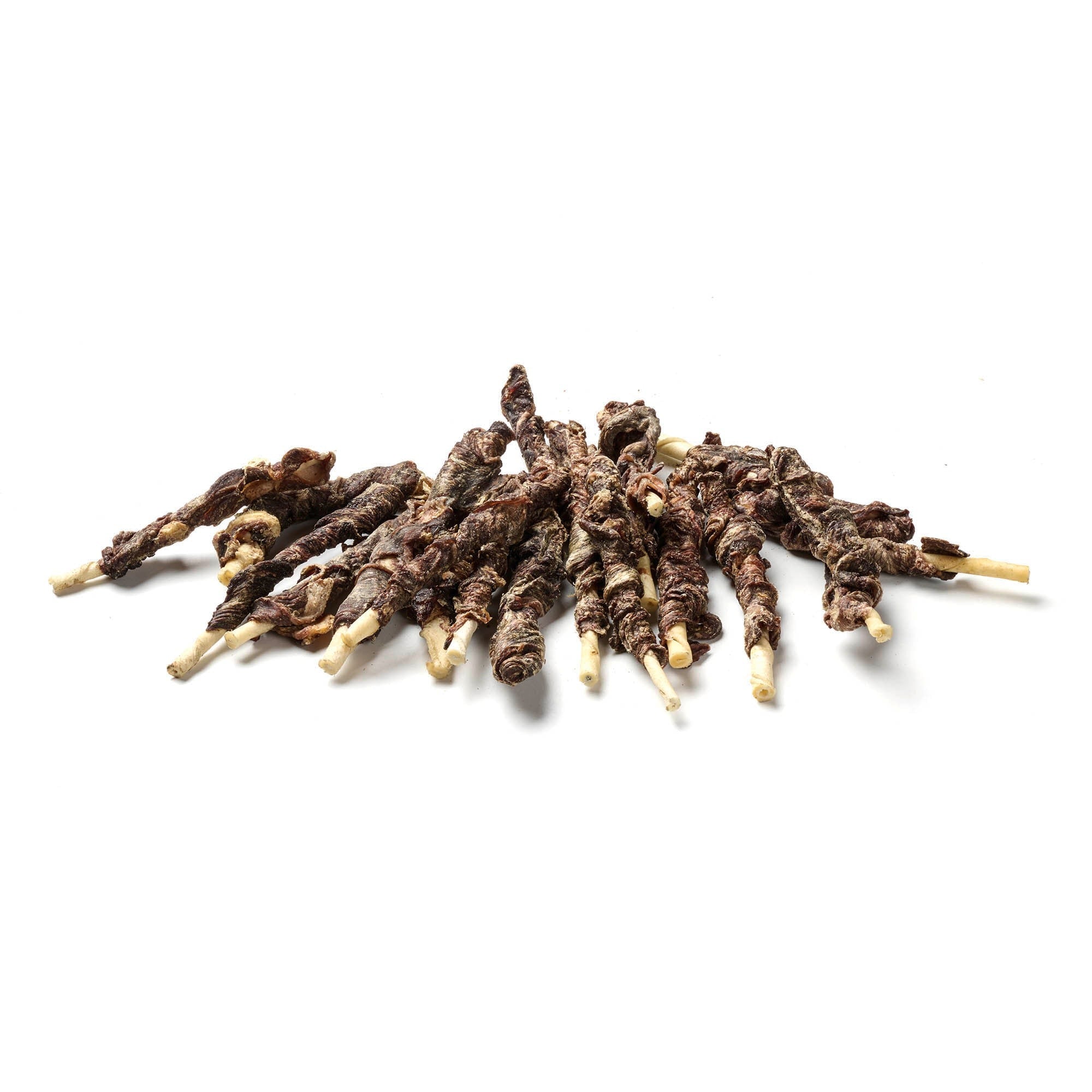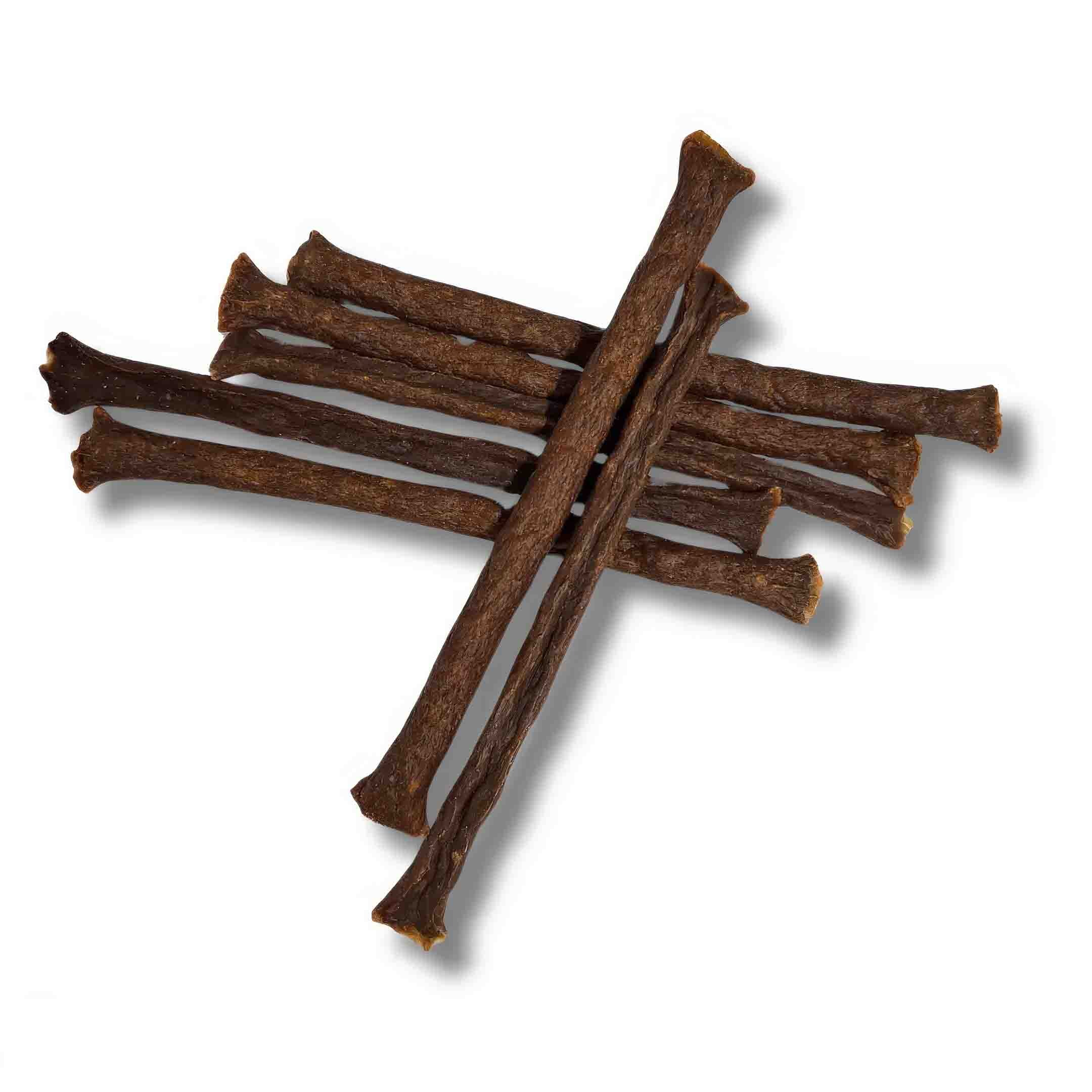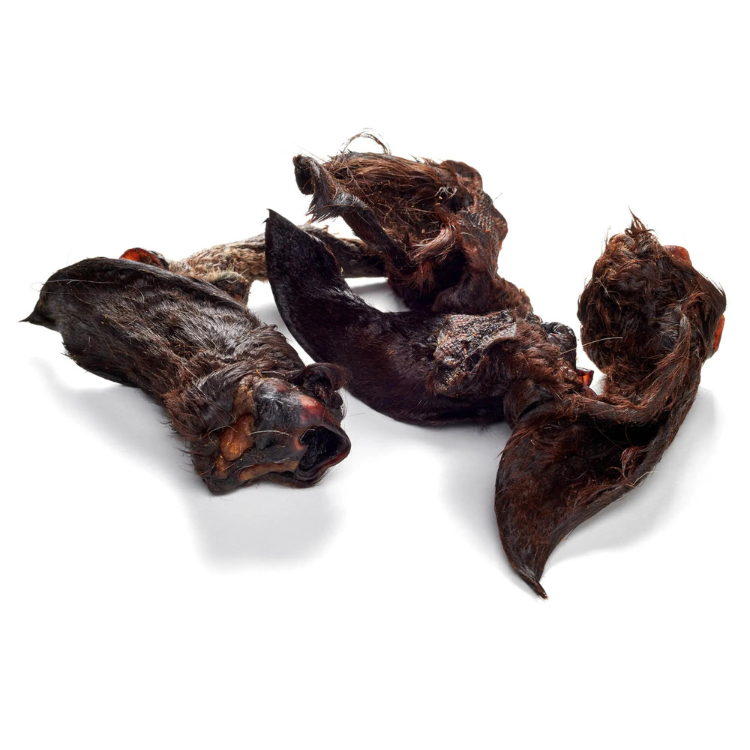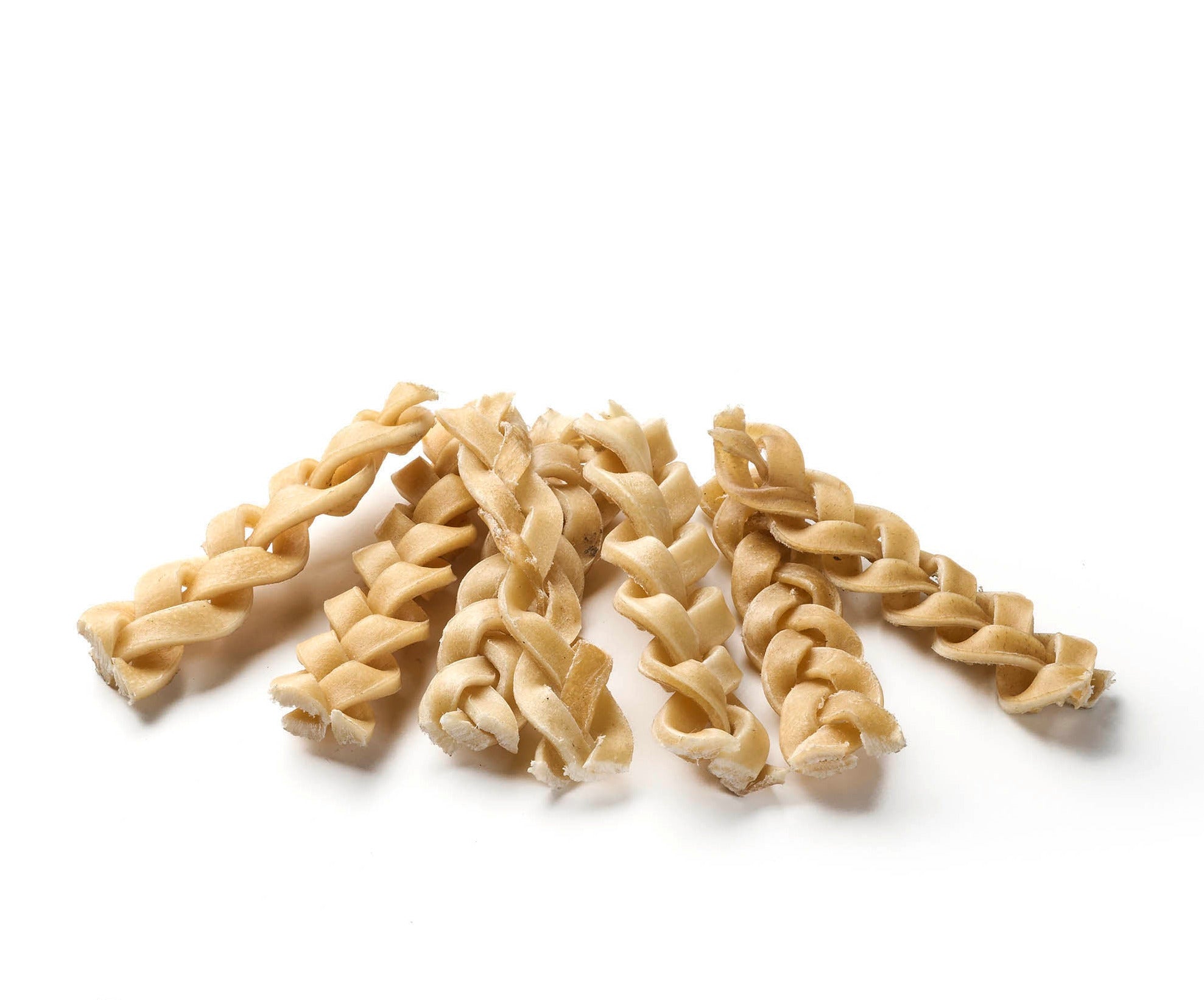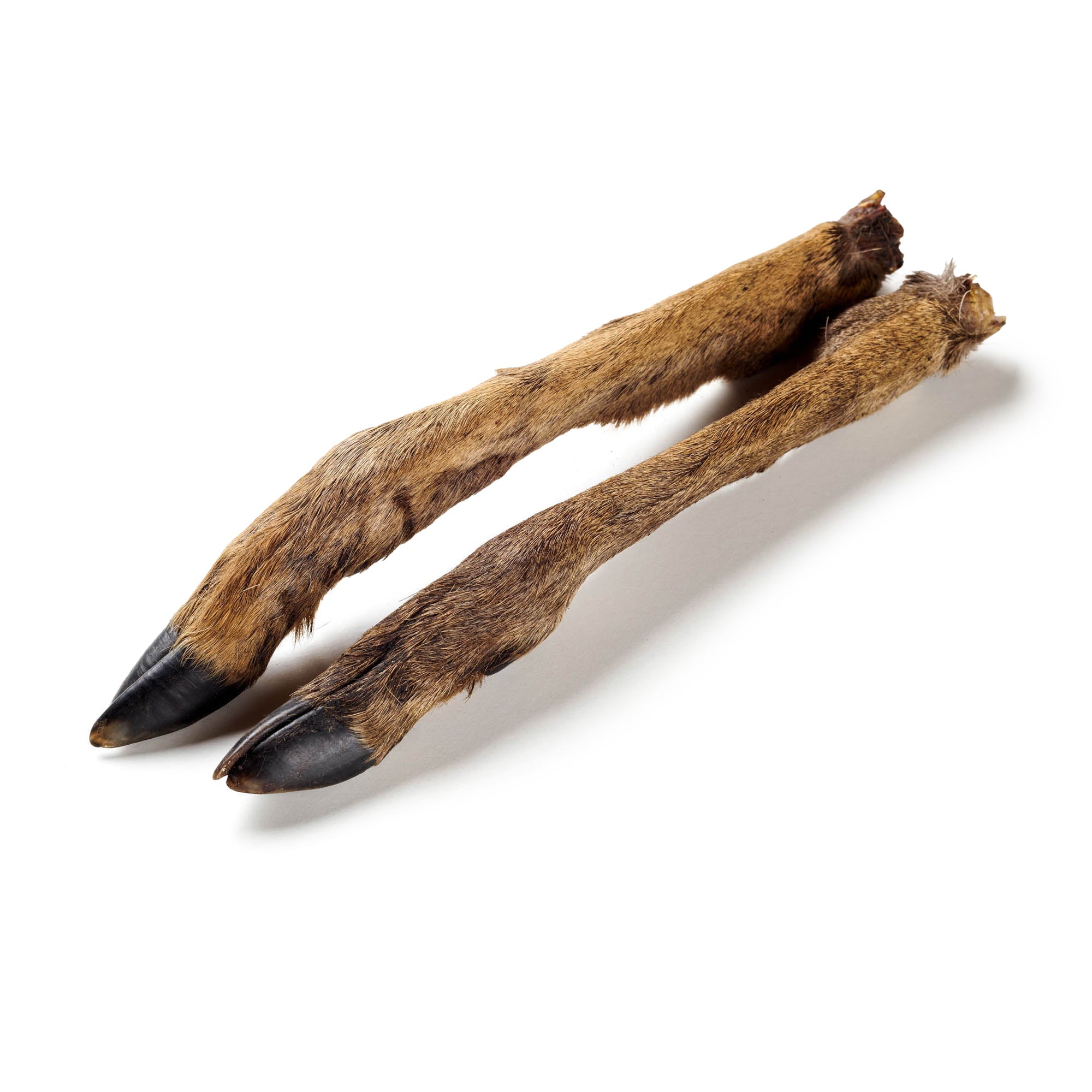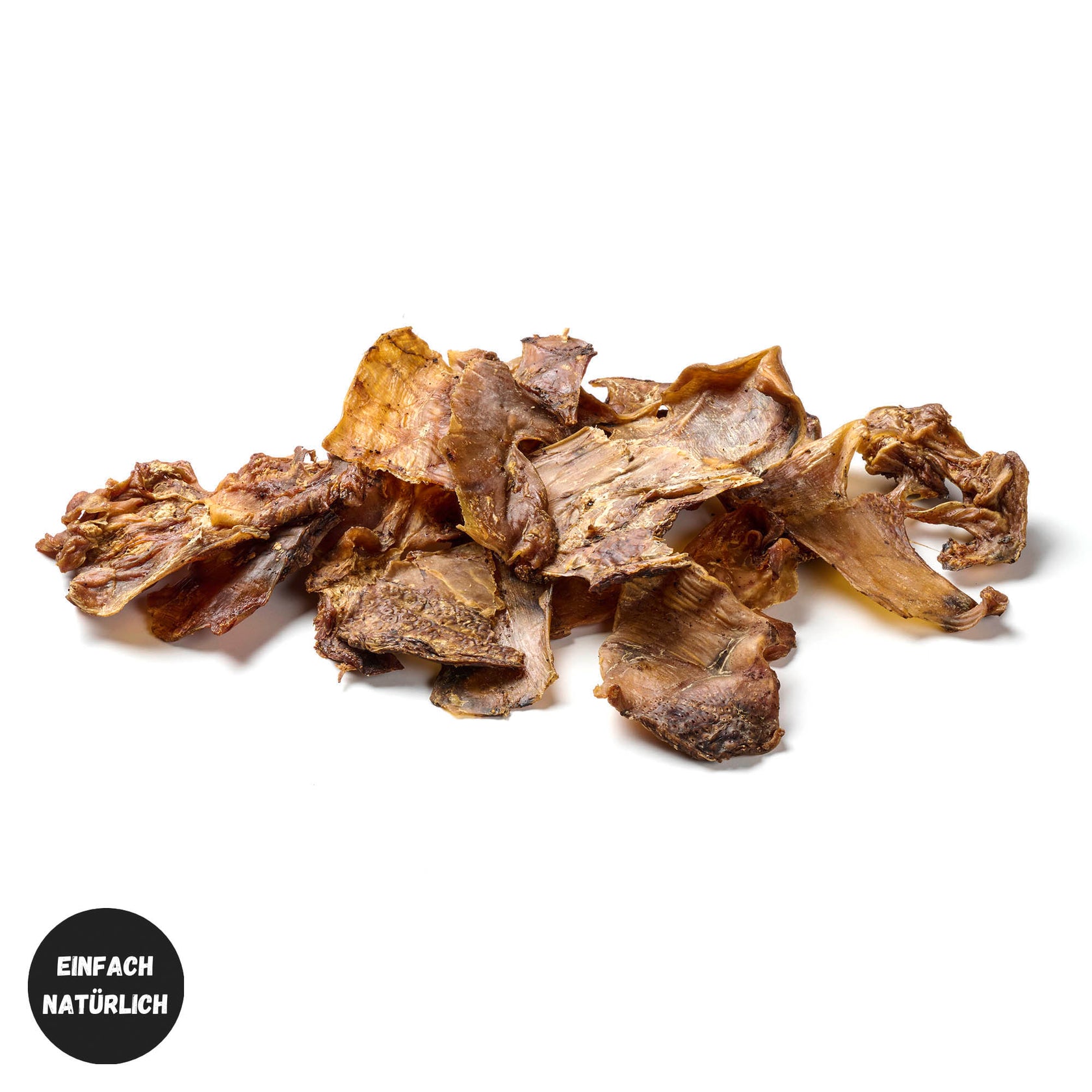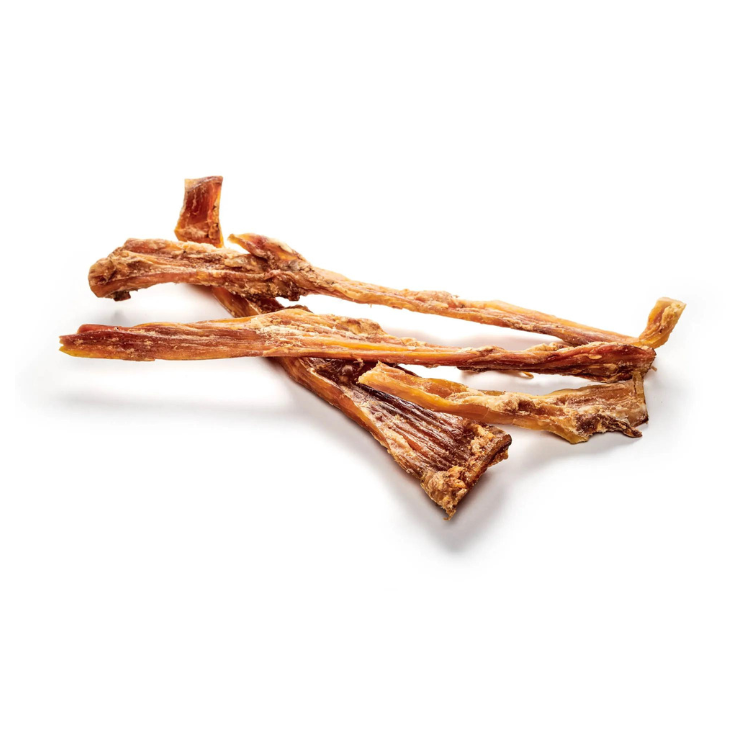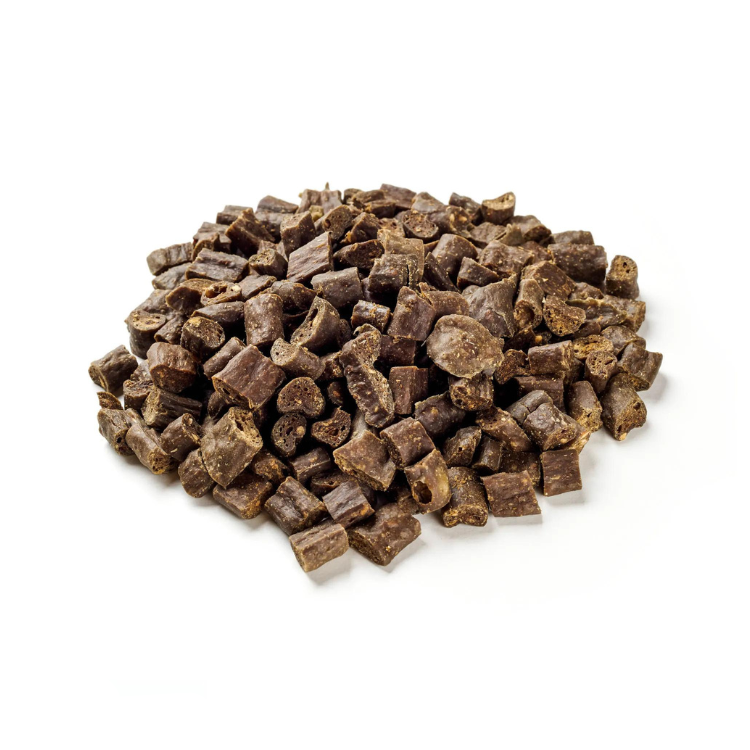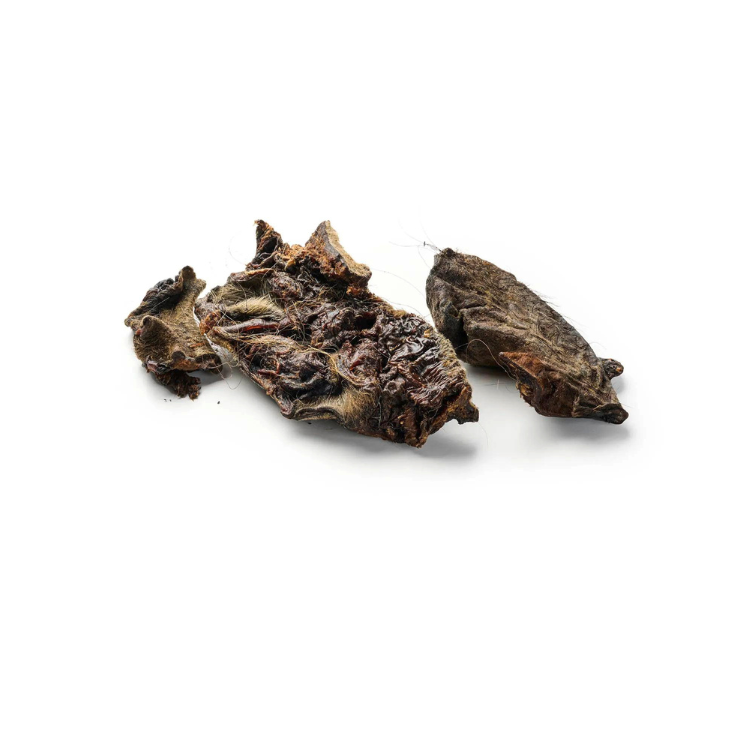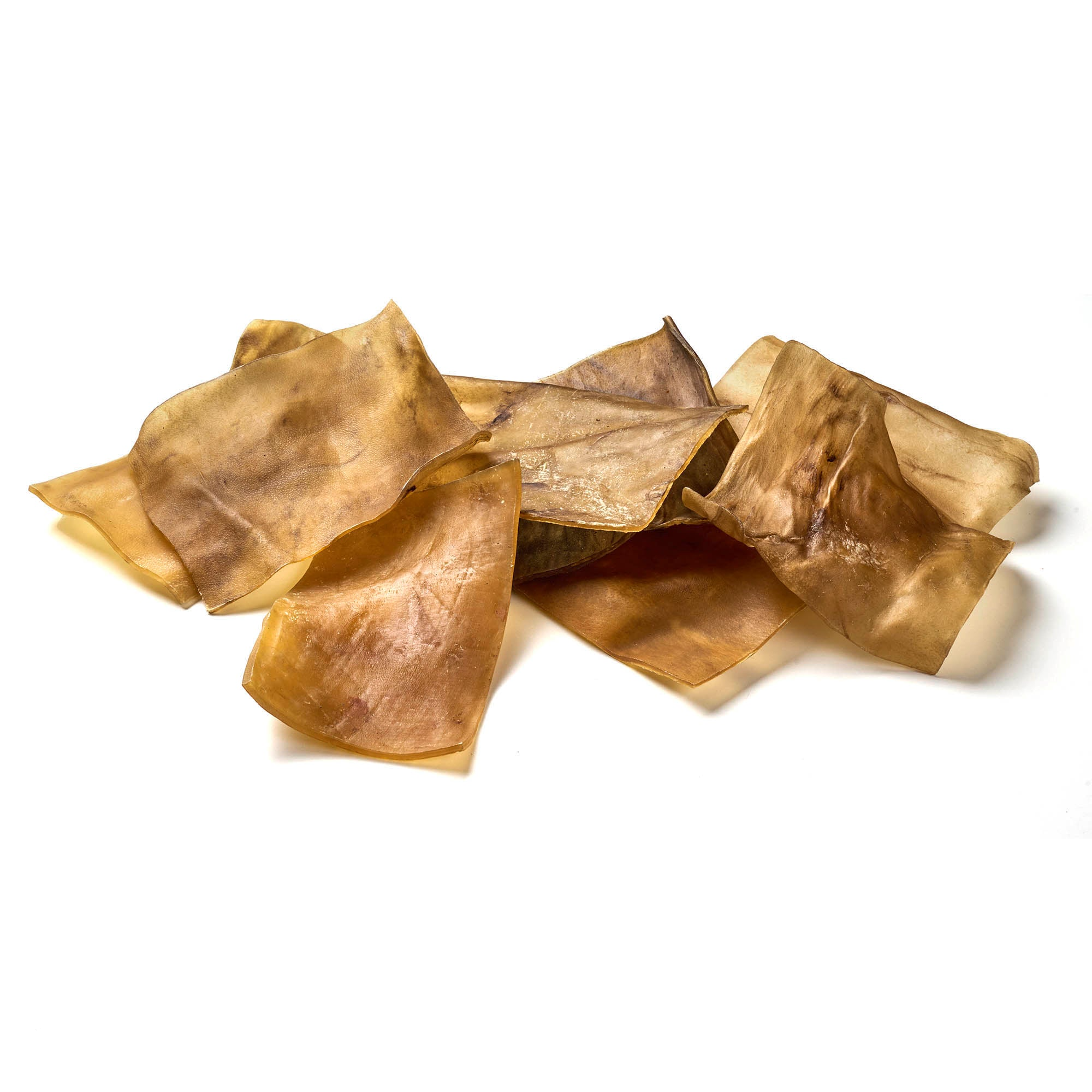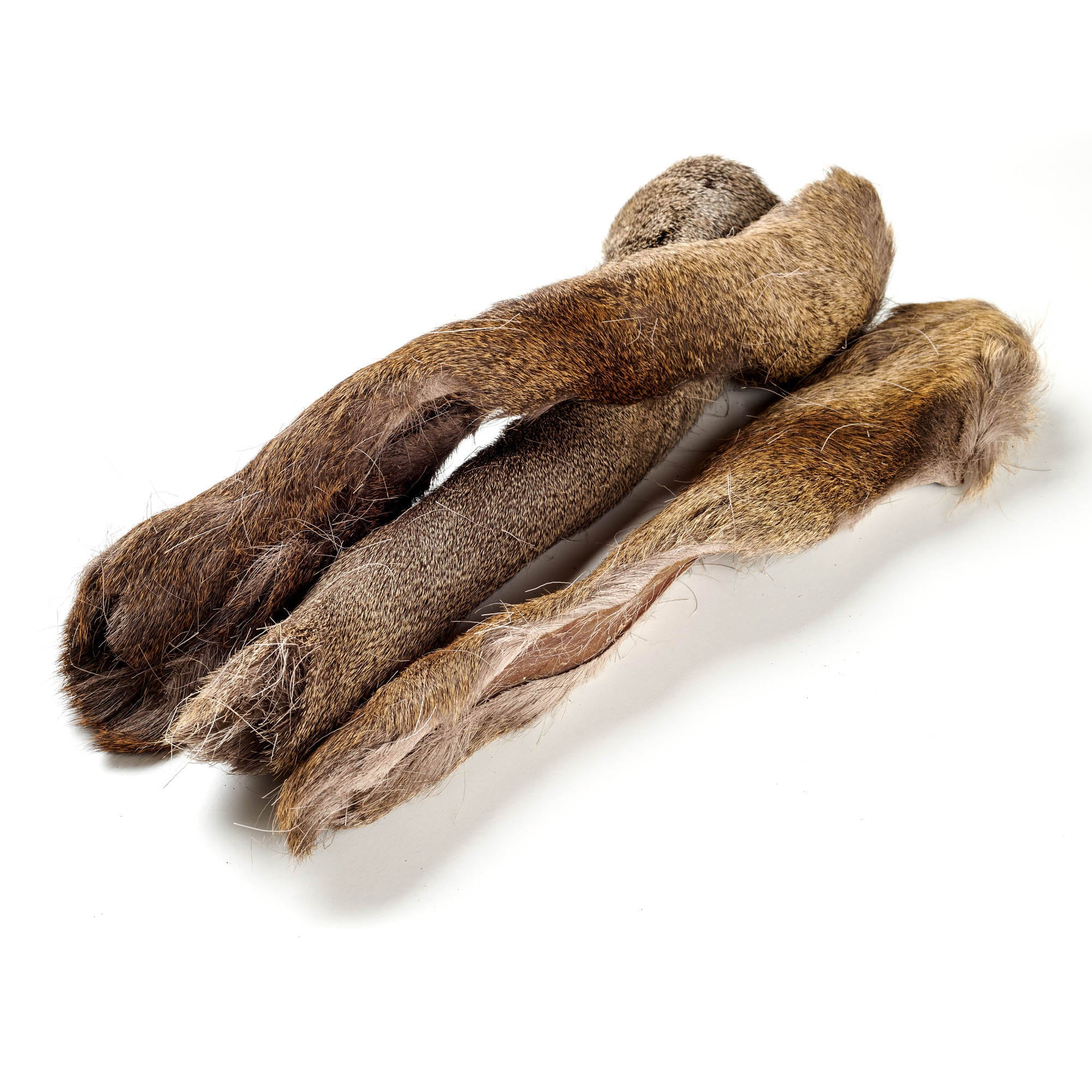
Ostrich meat for dogs
Share
Many dog owners are looking for food options that are both healthy for their dogs and have a positive impact on the environment. In this context, ostrich meat is becoming increasingly popular. Not only does it offer valuable nutrients, but it is also a better choice from an ecological perspective compared to conventional types of meat such as beef or pork. The lower demand for land and water as well as lower methane emissions make ostrich meat an attractive alternative for environmentally conscious animal owners.
For bird lovers, the idea of feeding ostrich meat can be a bit questionable. After all, ostriches are impressive creatures, and using ostriches as dog food may not seem quite right to some dog owners.
So is ostrich meat really a good choice for our dogs' diet? This article explores this question.
Contents: Ostrich meat for dogs
- The ostrich: A fascinating creature of its kind
- Nutrients in ostrich meat
- Which dogs is this meat suitable for?
- What is the best way to feed ostrich meat to dogs?
- Conclusion
Bring joy to your dog's day with our treats!
The ostrich: A fascinating creature of its kind
The ostrich, scientifically known as Struthio camelus, is the largest living bird on our planet and a symbol of the fascinating diversity of Africa's wildlife. Native to much of Africa, this impressive bird inhabits a variety of habitats, from dry savannahs to open bushlands. Despite its massive body, the ostrich is an excellent runner that can reach speeds of up to 70 km/h - but it cannot fly.
The ostrich belongs to the ratite family, a group that also includes other large, flightless birds such as emus and cassowaries. Over the course of evolution, these birds have adapted to a life on the ground, which is reflected in their strong legs and large frame. A fully grown ostrich can reach a height of up to 2.8 meters and a weight of over 150 kilograms.
Interestingly, ostriches play an important role in their ecosystem. They are omnivores, feeding on a mix of plants and small animals, which helps maintain balance between different species and their environment. Their large eggs, among the largest of any living animal, not only provide a source of food for predators, but have also held cultural significance for centuries for the people who live near these majestic birds.
In recent decades, the breeding of ostriches outside their natural habitat has increased, particularly for the production of meat, leather and feathers. This practice has led to a new appreciation for the ostrich as a farm animal, with increasing focus on the sustainability and environmental impact of ostrich farms.
In contrast to cattle breeding, ostriches require significantly less water and land and also produce less methane, making them a more environmentally friendly alternative. Their products, such as meat, leather and feathers, offer a variety of uses that make ostrich farming particularly economical. In addition, ostriches are less susceptible to diseases common in intensive livestock farming, reducing the need for antibiotics. These aspects together lead to a more efficient and sustainable form of animal husbandry that offers both ecological and economic benefits.
Despite their popularity in agriculture, ostriches remain fascinating symbols of Africa's wilderness and remind us of the need to protect the natural habitats that support these and other wild species. Their adaptability and survival strategies in the wild provide valuable insight into the complexity of the natural world and the importance of species conservation.
High-quality dog snacks to pamper your dog, now available!
Discover natural and healthy chews made from ostrich meat for your four-legged friend in our shop!
Nutrients in ostrich meat
Ostrich meat is known not only for its tenderness and flavor, but also for its high nutritional value, making it an excellent choice for a healthy diet. It is rich in high-quality proteins, which are essential for building and repairing body tissues as well as maintaining good muscle mass. Compared to other meats such as beef or pork, ostrich meat is characterized by its low fat content, especially saturated fat, making it a heart-friendly option.
Another significant benefit of ostrich meat is its high iron content. Iron is a critical nutrient that helps prevent anemia by supporting the formation of hemoglobin, which is responsible for transporting oxygen in the blood. Additionally, ostrich meat is a good source of zinc, a mineral important for the immune system, wound healing and cell division.
Ostrich meat also contains significant amounts of vitamin B12, which is essential for nervous system function and red blood cell formation. Other B vitamins, such as niacin (B3), riboflavin (B2) and thiamine (B1), are also present in significant amounts and play an important role in energy metabolism and in maintaining healthy skin and eyes.
In addition to these nutrients, ostrich meat also provides phosphorus, which along with calcium ensures strong bones and teeth, and selenium, an antioxidant that protects cells from damage and supports thyroid function.
In summary, ostrich meat is a nutrient-dense choice that offers a variety of health benefits, from supporting muscle growth to promoting a healthy immune system and preventing anemia. Its nutrient profile makes it a valuable addition to a balanced diet.
Which dogs are ostrich meat suitable for?
Ostrich meat is an excellent alternative for dogs struggling with food intolerances or allergies . If your dog is allergic to common meats like chicken and lamb , ostrich meat might be just the thing. Thanks to its hypoallergenicity, it fits well into exclusion diets and is generally very well tolerated. This makes it ideal for dogs with a sensitive digestive system. Additionally, because of its low fat and calorie content, ostrich meat is a good choice for dogs that tend to be overweight and supports healthy weight management.
Although ostrich meat is generally suitable for all dogs and can be a nutrient-rich addition to their diet, it is more expensive in Germany and Europe than other types of meat. These higher costs are due to the special breeding and keeping conditions as well as the lower availability.
But investing in ostrich meat can be very worthwhile, especially if you have allergies and intolerances. It's best to introduce ostrich meat into your dog's diet gradually to ensure it is well tolerated and your dog accepts the new food.
What is the best way to feed ostrich meat to dogs?
If you want to feed your dog ostrich meat, there are several ways to do it. One of these is purchasing fresh ostrich meat, which is often used in the BARF method , which feeds dogs raw meat and other natural ingredients.
You can often find fresh ostrich meat in online shops. Make sure the meat is fresh, has a vibrant red color, and has no unpleasant odor. It is also helpful to know the conditions under which the animals were raised and what they ate.
Although ostrich meat is typically available year-round, it can sometimes be difficult to find.
In addition to fresh meat , ostrich meat chews , i.e. dried ostrich meat, are a healthy and tasty addition to any dog's diet. Our selection includes:
- Softies Ostrich: These soft treats are perfect for dogs who prefer softer snacks or for older dogs with sensitive teeth.
- Ostrich Achilles Tendons : A natural and long-lasting chew that helps clean teeth while providing long-lasting chewing fun.
- Ostrich Stomachs : Rich in nutrients and with a taste that dogs love, these make a great treat or snack.
- Ostrich training snack : Ideal for training or as a small reward in between. These snacks are not only delicious but also healthy.
Our ostrich meat chews are a great way to give your dog something special that is not only delicious but also nutritious. They are free of artificial additives and preservatives, making them a healthy choice for your four-legged friend. Take a look at our offer and find the perfect ostrich snack for your dog.
Conclusion
So, ostrich meat is an excellent choice for your dog's diet, offering both health and environmental benefits. It is high in protein and minerals but low in fat, making it ideal for dogs with food intolerances, sensitive digestive systems or weight problems. Although it is more expensive than traditional meats, the benefits for special dietary needs or as a special treat justify the price.
Our selection of ostrich meat chews, such as softies, Achilles tendons, gizzards and training snacks, provide a healthy addition to your daily diet. They are free of artificial additives, support dental care and ensure employment.
By choosing ostrich meat, you not only support your dog's health, but also more sustainable farming practices. It's a decision that offers the best of both worlds: well-being for your dog and a contribution to environmental protection.
Spoil your four-legged friend with our delicate chew items!

